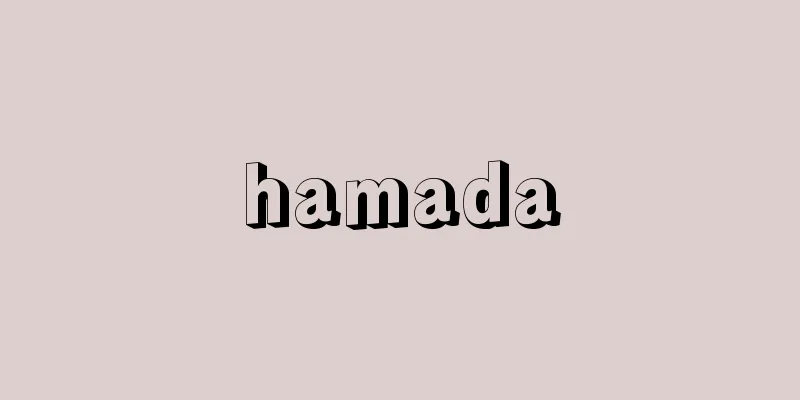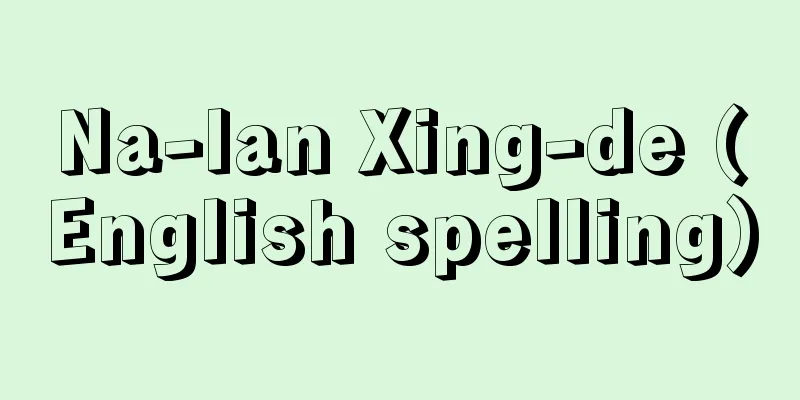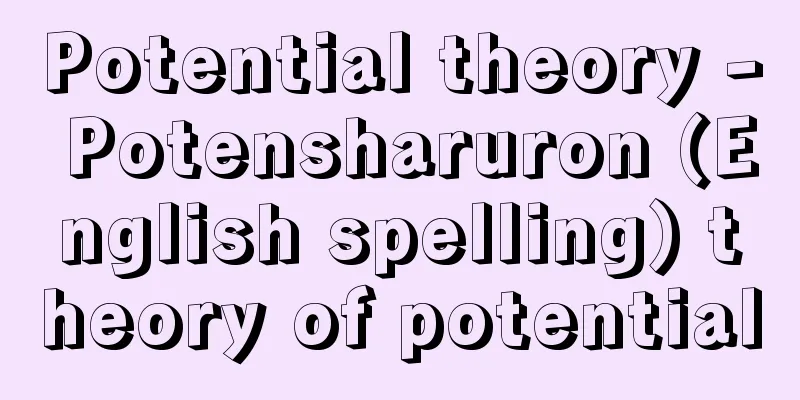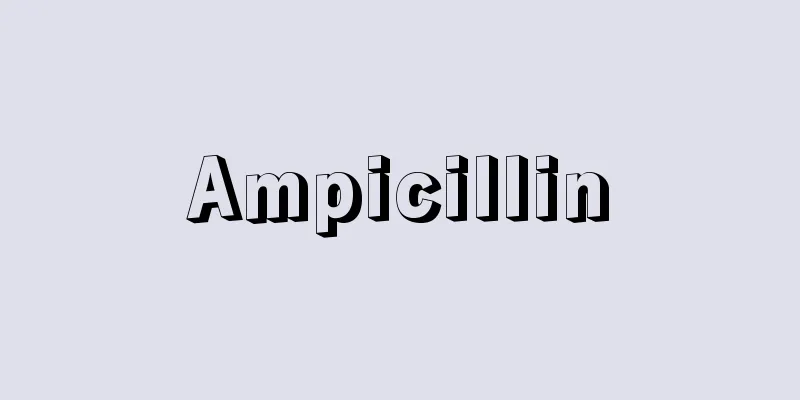Complement - Hogo

|
〘Noun〙① (Translation of "complement") A word that complements the meaning of imperfect intransitive verbs and imperfect transitive verbs in Western grammar. It is similar to "a sailor" and "happy" in the English sentences "He is a sailor" and "He made her happy". ② In Japanese grammar, among conjunctive modifiers, those that mainly accompany the case particles "ni" and "to". In contrast to those that accompany "wo" being called object or objective words. It is similar to "watashi wa" in "Mother gave me pocket money." ※Meiji Literature for Secondary Schools (1904), Haga Yaichi, 3 “‘Study hard and surpass the masses’, ‘Become ice and water’. The meaning of the above two sentences is incomplete with just ‘Study hard and surpass the masses’ and ‘Become ice’. The description is completed only with the addition of the complements ‘to the masses’ and ‘with water’.” [Additional notes] (Regarding ②) (1) There are different theories, such as one that considers ‘student’, ‘book’, and ‘arrow’ in sentences like ‘He is a student’, ‘This is a book’, and ‘Time flies like an arrow’ as complements because the sentences would be meaningless without them, and one that also includes ‘thief’ and ‘grammar’ (usually considered objective pronouns) as complements in sentences like ‘catch a thief’ and ‘teach grammar’. (2) In school grammar, following the ideas of Shinkichi Hashimoto, no distinction is made between objects and complements, but they are treated together as conjunctive modifiers. Source: The Selected Edition of the Japanese Language Dictionary About the Selected Edition of the Japanese Language Dictionary Information |
|
〘名〙① (complement の訳語) 西欧語の文法などで、不完全自動詞・不完全他動詞の意を補う語。英語の “He is a sailor” “He made her happy” の中の、“a sailor” “happy” の類。② 国文法で、連用修飾語のうち、主として格助詞「に」「と」を伴うもの。「を」を伴うものを目的語または客語というのに対する。「母が私にお小遣いをくれた」の「私に」の類。※中等教科明治文典(1904)〈芳賀矢一〉三「『勉励衆に超ゆ』『氷水となる』右の二文は『勉励超ゆ』『氷なる』にては叙述の意味完からず。『衆に』『水と』の補語を加へて、叙述始めて完全するものとす」[補注](②について) (1)「彼は学生なり」「これは本である」「光陰矢の如し」などの「学生」「本」「矢」を、これがないと意味をなさないという観点から補語とするもの、さらに「賊を捕える」「文法を教える」などの「賊」「文法」(普通は客語とされる)をも補語に含めるものなど異説がある。 (2)学校文法では、橋本進吉の考えに従い、客語や補語を区別せず、一括して連用修飾語として扱っている。 出典 精選版 日本国語大辞典精選版 日本国語大辞典について 情報 |
<<: Mother tongue; native language
>>: Insurance premium - hokenryo (English spelling)
Recommend
History of ideas
… Dilthey advocated a science of the mind that un...
Inai Slate - Inai Slate
...There are fishing ports such as Watanoha and O...
Fetal placental function test
A test to examine the vitality of the fetus and th...
Korsch - Karl Korsch
A German social activist and Marxist thinker acti...
Guillaume de Borpiano - Guillaume de Borpiano
…Composer Rameau, sculptor Ludes, and architect E...
Empathic Understanding
...We are moved by the experiences of others and ...
Continuous casting
Molten steel is poured into a water-cooled copper...
Irish Mist - Irish Mist
…(1) Herbal: A blend of various aromatic plants, ...
Aiiku Village
...In 1963, the Aiiku Research Institute was esta...
Gokurakuji - Gokurakuji
Gokurakuji is a Shingon Buddhist temple in Kamaku...
Ferrata
The language is called Pulaar, Fulde, Fulfulde, F...
Iglesia Ni Cristo (English spelling) [Tagalog]
A Christian church founded in the Philippines on J...
The Book of Icelanders
… He was from a distinguished family and was educ...
Matka (English spelling)
… Microtones are often seen in folk music as subt...
Coastal area - Enkaiikuiki
A navigational area defined by the "Enforceme...
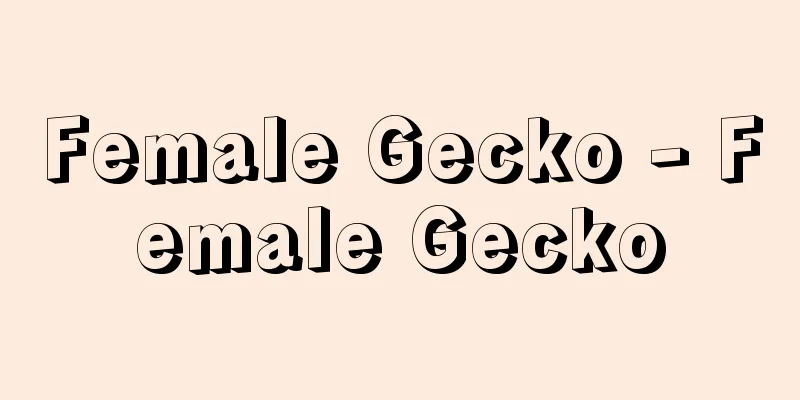


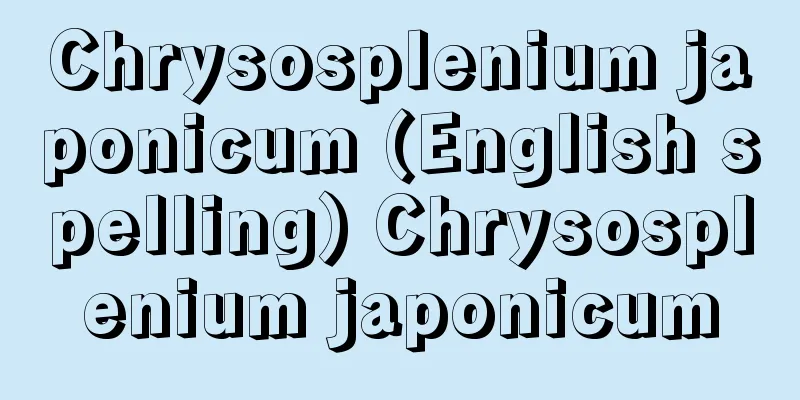
![Omihachiman [city] - Omihachiman](/upload/images/67cb12870ead7.webp)
